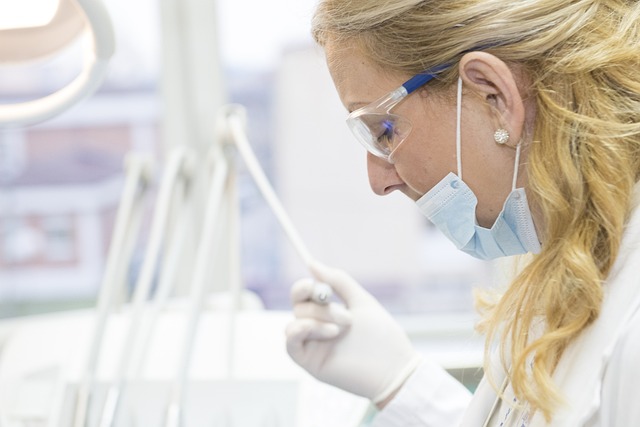Invisalign Dry Mouth: Banishing Discomfort with Effective Solutions
Are you rocking a beautiful smile with your Invisalign treatment, but experiencing the discomfort of dry mouth? Fear not! We understand how inconvenient it can be to deal with this pesky side effect. That’s why we have compiled a list of effective solutions to banish the discomfort of Invisalign dry mouth. In this article, we will explore why dry mouth occurs during Invisalign treatment and provide you with practical tips to combat it. So, sit back, relax, and get ready to bid farewell to dry mouth once and for all!
1. Understanding Invisalign: The Revolutionary Alternative to Braces
Invisalign is a remarkable alternative to braces that has revolutionized orthodontic treatment. This innovative system offers a discreet and comfortable way to straighten your teeth, without the hassle and self-consciousness associated with traditional metal braces. Here are some key points to help you understand the genius behind Invisalign:
1. Clear aligners: Unlike braces, Invisalign uses a series of clear, removable aligners that are virtually invisible when worn. The aligners are custom-made to fit snugly over your teeth and gradually shift them into their desired position. This means no more metal brackets or wires to mar your smile! Plus, you can easily remove them for special occasions or while eating.
2. Customized treatment plan: Your orthodontist will create a customized treatment plan tailored to your unique needs. Through advanced digital imaging technology, they will map out the exact movements your teeth need to make to achieve the desired results. This ensures a more precise and efficient treatment, reducing the time needed to achieve a straighter smile.
3. Increased comfort: Invisalign aligners are made from smooth, comfortable plastic that won’t irritate your cheeks and gums like traditional braces can. The absence of metal components means no more painful adjustments or sores. It’s a truly comfortable and pain-free experience.
4. Efficient progress: With Invisalign, you will visit your orthodontist less frequently compared to braces. You will receive a series of aligners at each appointment, usually enough for a few weeks of continuous wear. This means fewer check-ups and more convenience in your busy schedule.

2. The Common Side Effect of Invisalign: Dealing with Dry Mouth
Dealing with dry mouth is a common side effect that some people experience while undergoing Invisalign treatment. Although it can be uncomfortable, there are ways to manage this temporary issue and ensure a more comfortable orthodontic journey.
1. Hydrate, hydrate, hydrate: One of the simplest ways to combat dry mouth is by drinking plenty of water throughout the day. Staying hydrated not only helps ease the discomfort but also promotes saliva production. Carry a water bottle with you and take regular sips to keep your mouth moist.
2. Use a humidifier: If you find yourself waking up in the morning with a dry mouth, consider using a humidifier in your bedroom. This device adds moisture to the air, preventing your mouth from drying out while you sleep.

3. Unveiling the Causes of Dry Mouth during Invisalign Treatment
One common issue that patients often experience during Invisalign treatment is dry mouth. While it may not be a serious problem, it can still be uncomfortable and bothersome. Understanding the causes of dry mouth can help you manage it better and ensure a smoother treatment process.
Causes of Dry Mouth during Invisalign Treatment:
1. Reduced Saliva Production: Wearing your aligners for the recommended 20-22 hours a day can cause your mouth to become dry. This is because the aligners cover your teeth and prevent saliva from flowing freely. Saliva plays a crucial role in moistening your mouth and digesting food, so when its production is reduced, dry mouth can occur.
2. Nasal Breathing: Invisalign aligners are designed to fit snugly over your teeth, which may promote breathing through your nose instead of your mouth. Breathing mainly through your nose can result in reduced moisture in your mouth, leading to dryness.

4. The Importance of Addressing Dry Mouth: Protecting Your Oral Health
Dry mouth, medically known as xerostomia, is a common condition that occurs when your salivary glands fail to produce enough saliva. While it may seem like a minor inconvenience, dry mouth can actually have serious implications for your oral health. Let’s take a closer look at why addressing dry mouth is so important in maintaining a healthy mouth.
Damage to tooth enamel: Saliva plays a crucial role in protecting your teeth. It helps to neutralize acids produced by bacteria, remineralize your tooth enamel, and wash away food particles. When you have a dry mouth, these protective properties are diminished, which can lead to tooth enamel erosion, dental decay, and an increased risk of cavities.
Increased risk of gum disease: Without enough saliva to wash away harmful bacteria, plaque tends to build up along the gum line, increasing the chances of gum disease. Dry mouth can also lead to sore and inflamed gums, making it uncomfortable to brush and floss, further exacerbating the risk of gum disease.

5. Exploring the Impact of Dry Mouth on Invisalign Aligners
One of the common concerns when wearing Invisalign aligners is the possibility of experiencing dry mouth. This side effect can be uncomfortable, but understanding the impact it has on your aligners can help you effectively manage it.
Dry mouth occurs when your salivary glands don’t produce enough saliva to keep your mouth moist. This can be caused by a variety of factors, including certain medications, medical conditions, or simply not drinking enough water. When wearing Invisalign aligners, dry mouth can affect both the fit and function of your aligners. Here’s what you need to know:
- Reduced saliva production: Dry mouth can result in reduced saliva production, which can affect the overall comfort of your aligners. Saliva helps lubricate your mouth and provide a pleasant environment for your aligners to rest in.
- Speech difficulties: Dry mouth can also cause speech difficulties while wearing your aligners. The lack of moisture in your mouth can make it more difficult to enunciate certain words or sounds.
- Increased bacterial growth: Without sufficient saliva, bacteria can proliferate, leading to oral health issues and a higher risk of tooth decay. Ensure you maintain good oral hygiene practices to minimize these risks.
Dealing with dry mouth is essential to maintain the comfort and effectiveness of your Invisalign aligners. Make sure to stay hydrated by drinking enough water throughout the day. Avoid caffeine and alcohol, as they can contribute to dry mouth. If you’re experiencing severe dry mouth, consider talking to your dentist or orthodontist for additional guidance and potential remedies. By addressing dry mouth, you can continue your Invisalign treatment with ease and achieve your desired smile transformation.
6. Say Goodbye to Discomfort: Effective Solutions for Invisalign Dry Mouth
When undergoing Invisalign treatment, it’s not uncommon to experience dry mouth. This can be a result of the aligners covering the teeth and temporarily reducing saliva production. Don’t fret, though! We have some helpful tips to combat this discomfort and keep you on track with your smile transformation.
To alleviate dry mouth during Invisalign treatment, try these simple yet effective solutions:
- Stay hydrated: Drinking plenty of water throughout the day helps keep your mouth moist and can prevent dryness.
- Chew sugar-free gum: Chewing gum stimulates saliva flow, aiding in the relief of dry mouth. Opt for sugar-free options to maintain your oral health.
- Use a moisturizing mouthwash: Look for mouthwashes that are specifically formulated to combat dry mouth. These products can help soothe any discomfort while providing moisture.
Remember, it’s essential to maintain good oral hygiene during your Invisalign journey. Regular brushing and flossing are crucial in preventing dry mouth and ensuring the overall health of your teeth. Additionally, make sure to communicate any concerns with your orthodontist, as they can offer customized solutions tailored to your needs.
7. Hydration is Key: Tips to Keep Your Mouth Moist during Invisalign
During your Invisalign treatment, staying hydrated is crucial to ensure optimum comfort and oral health. Keeping your mouth moist not only helps alleviate any potential discomfort but also supports the proper alignment of your teeth. Here are some tips to help you maintain hydration throughout your treatment:
1. Drink plenty of water: Sip on water frequently throughout the day, aiming to consume at least eight glasses. Not only does this keep your mouth moisturized, but it also helps rinse away any food particles that might get trapped in your aligners.
2. Avoid sugary and acidic drinks: Steering clear of sugary and acidic beverages, like soda and fruit juices, is essential. These drinks can increase the risk of cavities and enamel erosion. Opt for plain water, unsweetened tea, or sugar-free flavored water instead.
8. Combatting Dry Mouth: The Role of Saliva Stimulants in Invisalign Treatment
Invisalign treatment can offer a great solution for straightening teeth with its virtually invisible aligners. However, one common side effect that patients may experience during their treatment is dry mouth. This can be uncomfortable and may lead to other dental issues. To combat dry mouth, saliva stimulants can play a crucial role in alleviating this issue.
Saliva stimulants, also known as sialagogues, are substances that promote saliva production in the mouth. They can help relieve dry mouth symptoms by increasing saliva flow, which not only provides lubrication but also helps to protect teeth and gums from potential damage caused by reduced saliva production. Additionally, saliva plays a vital role in maintaining a healthy oral environment by neutralizing acids and washing away food particles and bacteria. Some popular saliva stimulants that can be used during Invisalign treatment include:
- Xylitol products: Chewing gum or lozenges containing xylitol can stimulate saliva flow and help moisturize the mouth.
- Sugar-free candies or mints: These can provide a refreshing sensation and trigger saliva production.
- Biotene oral rinse: Specifically designed for dry mouth relief, this rinse provides immediate hydration and helps to maintain a moist oral environment.
Remember, staying properly hydrated by drinking plenty of water throughout the day is also crucial. It’s essential to consult with your dentist or orthodontist to determine the most suitable saliva stimulant options for you during your Invisalign treatment. By effectively combatting dry mouth, you can have a more comfortable and successful journey towards achieving your dream smile.
9. Effective Ways to Alleviate Invisalign Dry Mouth at Home
One common side effect of wearing Invisalign aligners is experiencing dry mouth. This can occur because the aligners cover your teeth and prevent saliva from naturally lubricating your mouth. If you’re experiencing this discomfort, here are some :
1. Stay hydrated: Drink plenty of water throughout the day to keep your mouth moist. This helps prevent dryness and promotes saliva production. Keep a water bottle handy and make a habit of sipping water frequently.
2. Chew sugar-free gum: Chewing on sugar-free gum stimulates saliva production, helping to combat dry mouth. Opt for gum containing xylitol, as it can also prevent tooth decay. Pop in a piece of gum after meals or whenever you feel your mouth getting dry.
10. Seeking Professional Guidance: How Your Dentist Can Help with Invisalign Dry Mouth
Invisalign is a popular orthodontic treatment option for straightening teeth without the use of traditional braces. While Invisalign offers many benefits, some patients may experience dry mouth as a side effect. Fortunately, your dentist can provide professional guidance and help alleviate this discomfort. Here are a few ways your dentist can assist you in managing dry mouth during your Invisalign treatment:
1. Oral Hygiene Tips: Your dentist can provide you with specific instructions on how to maintain good oral hygiene while wearing your Invisalign aligners. This includes brushing and flossing techniques that can help combat dry mouth and keep your mouth healthy.
2. Moisturizing Recommendations: Your dentist may suggest using saliva substitutes or specific oral moisturizers to relieve dry mouth symptoms. They can recommend suitable products and provide guidance on how and when to use them, ensuring optimal hydration and overall comfort during your Invisalign journey.
Frequently Asked Questions
Q: What is Invisalign dry mouth?
A: Invisalign dry mouth is a common side effect that some patients experience while using Invisalign clear aligners. It refers to a condition where you may feel a consistent lack of saliva in your mouth, leading to discomfort and possible oral health issues.
Q: What causes dry mouth during Invisalign treatment?
A: Dry mouth can be caused by multiple factors while using Invisalign. The aligners cover the surface of your teeth, making it harder for your saliva to naturally lubricate your mouth. The reduced air circulation and increased mouth breathing that can occur when wearing aligners may also contribute to dry mouth.
Q: How does dry mouth affect oral health?
A: Saliva plays a crucial role in maintaining oral health by neutralizing acids, preventing tooth decay, and washing away food particles and bacteria. When experiencing dry mouth, the lack of saliva can leave your teeth more vulnerable to cavities, bad breath, and gum disease.
Q: How can I alleviate dry mouth discomfort while using Invisalign?
A: Fortunately, there are effective solutions to relieve dry mouth discomfort when using Invisalign. Firstly, staying properly hydrated by drinking plenty of water throughout the day can help maintain saliva production. Chewing sugar-free gum or using saliva substitutes recommended by your dentist can also help combat dryness.
Q: Can adjusting my oral hygiene routine help with dry mouth?
A: Absolutely! Maintaining a good oral hygiene routine is especially important when dealing with dry mouth during Invisalign treatment. Brushing your teeth and aligners after meals with a fluoride toothpaste can help prevent bacteria buildup. Flossing and using an antibacterial mouthwash are also recommended to maintain optimal oral health.
Q: Are there any lifestyle changes I can make to reduce dry mouth?
A: Certain lifestyle changes can help alleviate dry mouth discomfort. Avoiding or limiting the consumption of alcohol, caffeine, and tobacco can significantly reduce dryness symptoms. Breathing through your nose rather than your mouth whenever possible may also help prevent dry mouth.
Q: Should I consult my dentist about Invisalign dry mouth?
A: It is always a good idea to discuss any concerns or discomfort, including dry mouth, with your dentist or orthodontist. They can provide personalized recommendations based on your specific situation and may suggest additional treatments or adjustments to alleviate dryness.
Q: Will the dry mouth symptoms persist throughout my Invisalign treatment?
A: Dry mouth symptoms are typically temporary and tend to diminish as your mouth adjusts to wearing aligners. However, every individual’s experience may vary, so maintaining good oral hygiene and following the recommended solutions for dry mouth is crucial throughout your treatment.
Q: Can I use any over-the-counter products to alleviate dry mouth?
A: Several over-the-counter products, such as oral moisturizing sprays, mouth rinses, and dry mouth lozenges, are available to combat dry mouth discomfort. However, it is advisable to consult with your dentist before using any specific products to ensure they are safe and suitable for your situation.
Q: Is there anything else I should know about Invisalign dry mouth?
A: Dry mouth is a common side effect, but don’t let it deter you from pursuing an amazing smile with Invisalign. By following good oral hygiene practices, staying hydrated, and seeking professional advice, you can effectively manage dry mouth discomfort and enjoy the many benefits of Invisalign treatment.
Conclusion
In conclusion, we hope this article has provided you with valuable insights into how to alleviate dry mouth while wearing Invisalign aligners. We understand the discomfort and inconvenience this condition can bring, but we want to reassure you that effective solutions are within your reach.
Remember, maintaining proper oral hygiene by brushing and flossing regularly is essential to combat dry mouth. Additionally, do not hesitate to try some of our simple yet effective remedies, such as staying hydrated, using sugar-free gums or lozenges, and incorporating moisture-inducing foods into your diet.
By implementing these strategies, you can bid farewell to dry mouth and enjoy a comfortable and enjoyable Invisalign journey. As always, for specific concerns or persistent dry mouth symptoms, don’t hesitate to reach out to your dentist or orthodontist for professional guidance.
Embrace your Invisalign experience with confidence, knowing that you possess the knowledge and tools to conquer any discomfort. Soon enough, you’ll be flashing a beautiful, straight smile, completely oblivious to any dry mouth concerns. Keep those aligners in, stay hydrated, and happy smiling!






